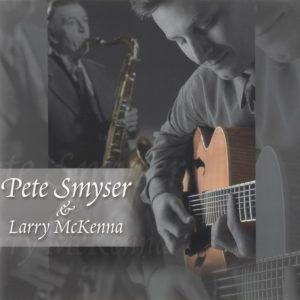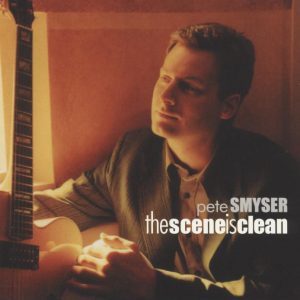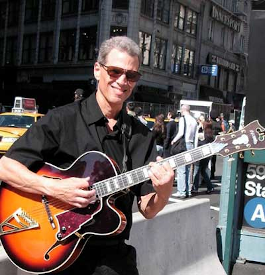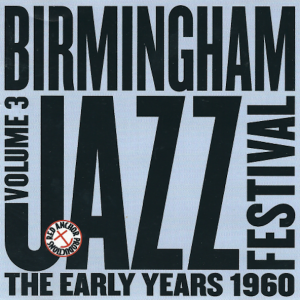James Silberstein
Silberstein and crew open the collection in easy mid-tempo mode on James’ original, “Red Carpet.” Cimorosi’s steady walking bass lines and Cherico’s light, interactive touch provide a solidly swinging foundation for potent solos by both Brecker and Silberstein on this jaunty quartet number. Carla Cook then unveils her hauntingly beautiful delivery on a poignant reading of the gorgeous Sergio Mendes ballad “So Many Stars,” which also features nimble, engaging solos from guitar and piano. Silberstein burns a blue streak on Horace Silver’s “Nica’s Dream,” a spirited post-bop romp that also features Brecker and Alexander on the frontline and is fueled by the surging rhythm tandem of bassist Harvie S and drummer Cherico. The easy grooving blues “Aquas” is Silberstein’s answer to Horace Silver-Bobby Timmons soul-jazz anthems like “Juicy Lucy” and “Dat Dere,” while “House Party” is a funk-fueled throw-down with the full ensemble featuring some sizzling solo contributions from Brecker, Silberstein, Alexander and Barth on Fender Rhodes electric piano.
On a burning up-tempo trio rendition of Cole Porter’s “Love For Sale,” Silberstein pulls out all the stops and unleashes one of his most impressive, fleet-fingered solos on the collection. His combination of impeccable articulation, fluent lines, and sheer blazing speed here is yet more evidence of the guitarist’s infinite capacity to burn. Elsewhere, he renders Irving Berlin’s “How Deep Is The Ocean” as an alluring bossa-samba in a pared-down trio setting, then brings back Alexander for a buoyant, up-tempo take on Anthony Newley’s signature piece, “Who Can I Turn To,” which serves as a perfect vehicle to showcase the young tenor titan’s ability to blow through the changes with relentless drive and a robust, deep tone. Silberstein adds another flawlessly facile single note solo here that is firmly in the swinging tradition of jazz guitar elders like Chuck Wayne, Bucky Pizzarelli, and Mundell Lowe.
Silberstein strikes an evocative note on “Song for Micaela,” an appealing bossa nova original written for his daughter, and he engages in some loose-hip interplay with bassist Harvie S and drummer Cherico on an easy-swinging trio rendition of the oftrecorded jazz standard “You’re My Everything.” Harvie offers up a lyrical solo here while James and Vince exchange some tight “fours” that reveal their obvious chemistry together. Sticking with the trio format, Silberstein, Cimorosi and Cherico turn in an affecting jazz waltz rendition of “Baubles, Bangles & Beads,” which features a particularly fiery solo from the guitarist. And the collection closes on a beautifully introspective note with James’ virtuosic unaccompanied take on the affecting Mickey Leonard composition, “Why Did I Choose You,” which stands as a veritable clinic in the art of solo guitar. As he explained, “I’ve done a lot of solo guitar gigs over the years, so having at least one solo piece on the CD seemed to be a good way of demonstrating a different aspect of my playing. I love playing solo. It’s really challenging to try to come up with counterpoint lines and appealing harmonies in developing arrangements of standard tunes.”
Born in New York City, Silberstein grew up in White Plains before his family moved back to the big city when he was 16. Two years later, he met the Brazilian guitarist Gaudencio Thiago de Mello, who would become an important mentor for the developing guitarist. While soaking up the sounds of Brazilian music from de Mello and from the recordings of other Brazilian guitarists like Baden Powell and Bola Sete, James also began immersing himself in jazz guitar by checking out key recordings and hanging out at New York clubs like The Guitar, formerly located on 50th Street and 10th Avenue. As he recalled, “I started going to The Guitar and other clubs when I was in my 20s and regularly saw great players like Kenny Burrell, Jim Hall, Chuck Wayne, Joe Puma, George Barnes, and Bucky Pizzarelli. One of my very favorites was Sam Brown, who had played with Bill Evans and also appeared on records with Keith Jarrett and Chick Corea. He was such a melodic, deep player. He played great chords, had an infinite repertoire, and was a beautiful person. I ended up playing a lot of duo gigs with Sam and fortuitously had the opportunity to learn from him at the same time we were gigging.”






